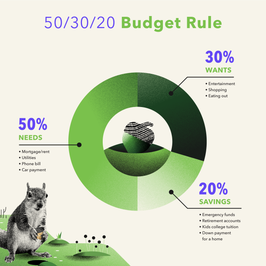Why Millennials Are Not Having Kids

Over the course of her adult life, Margaret Rakowski, 35, was at times interested in becoming a mom. But somehow, the timing never seemed right. And money was a central reason why.
“I grew up a millennial when, at every milestone of my life, some devastating event was impacting my personal and financial stability,” says Rakowski, an IT consultant who lives in New Orleans, Louisiana. The great recession hit during her first job out of college. Throw in climate change, a very polarizing political environment during the Trump presidency, and then the pandemic, and Rakowski and her wife have completely lost interest in parenthood.
Rakowski only recently became financially comfortable in her own life. If money were not an issue in her earlier adulthood, “I probably would have ended up choosing to have children,” Rakowski says.
But she’s glad things turned out the way they did. In retrospect, she says, considering motherhood was mostly “coming from a place of societal and gender expectations,” as opposed to personal desire.
Rakowski is among a growing number of young people in the U.S. who are choosing to remain child-free — many for financial reasons.
Margaret Rakowski (sunglasses) and her wife are choosing not to have children. Courtesy Margaret Rakowski
“There’s such a steep financial cost to having children these days that if you don’t have an extended family network to support from costs of childcare to food to clothing to education, it might as well be a luxury,” says Angela Sanchez, 31, a writer and equity consultant who is based in Los Angeles.
Some city dwellers already feel strained by the high cost of living in their metro area. “I can’t even afford rent, let alone a child. My cat is expensive enough,” says Serena Lee, 25, an organic waste recycling coordinator who lives in Los Angeles, California.
Interest in parenting has been declining for years
Births in the U.S. have fallen every year since 2007 except in 2014, according to a recent CDC National Vital Statistics Report. The total fertility rate declined to 1,641 births per 1,000 women in 2020. That’s down 4% from 2019, making for a new record low.
Like in many other developed countries, the U.S. population isn’t growing at a rate fast enough to replace itself. The CDC says that would require a fertility rate of about 2,100 children per 1,000 women.
Births in the U.S. have fallen every year since 2007, except 2014. CDC National Center for Health Statistics
U.S. fertility rates “are likely to be considerably below replacement levels for the foreseeable future” and “further research is needed to better understand the reasons for the long-term decline,” according to a Brookings Institute analysis.
An aging population strains the economy because a shrinking workforce can provide fewer services and pay less in taxes. Of particular concern is the future of retirement benefits, as more people take from Social Security than pay into it.
Most millennials are just getting by
Seven in 10 millennials are living paycheck to paycheck, according to a 2021 LendingClub and PYMNTS.com survey of more than 3,000 Americans. Raising a child could make that balance more precarious.
The USDA estimates that raising a child from birth to 17 years old costs about $230,000, for a middle-income couple earning $59,200 to $107,400 a year. That doesn’t factor in the cost of a college education. Those figures, the latest available, are for a child born in 2015, and so don’t factor in the recent spike in inflation, either.
Rakowski has enjoyed being an aunt to her siblings’ and her friend’s children. Courtesy Margaret Rakowski
The U.S. is not known as a family-friendly country. It doesn’t guarantee maternity or paternity leave for workers, or sick leave for employees generally, or health care for its citizens.
That shifts much of the burden of parenthood to individuals, and in response a lot of individuals are saying, No, thanks.
“I just never felt that intense desire others have described to carry a child and, despite the naysaying from others, my ‘maternal clock’ never kicked in or made me feel otherwise,” says Whitney Mackman, 37, an adjunct English professor who lives in New Orleans, Louisiana.
In many cases, kids have come to seem optional, like a bonus for those who can afford it. “The meme of ‘Plants are the new pets, pets are the new children, and children are the new exotic animal,’ couldn’t be truer,” Sanchez says.
This material has been presented for informational and educational purposes only. The views expressed in the articles above are generalized and may not be appropriate for all investors. The information contained in this article should not be construed as, and may not be used in connection with, an offer to sell, or a solicitation of an offer to buy or hold, an interest in any security or investment product. There is no guarantee that past performance will recur or result in a positive outcome. Carefully consider your financial situation, including investment objective, time horizon, risk tolerance, and fees prior to making any investment decisions. No level of diversification or asset allocation can ensure profits or guarantee against losses. Article contributors are not affiliated with Acorns Advisers, LLC. and do not provide investment advice to Acorns’ clients. Acorns is not engaged in rendering tax, legal or accounting advice. Please consult a qualified professional for this type of service.








